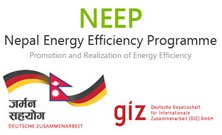Boiler Efficiency
The performance parameters of boiler, like efficiency and evaporation ratio reduces with time due to poor combustion, heat transfer surface fouling and poor operation and maintenance. Even for a new boiler, reasons such as deteriorating fuel quality, water quality etc. can result in poor boiler performance. Boiler efficiency tests help us to find out the deviation of boiler efficiency from the best efficiency and target problem area for corrective action.
Thermal efficiency of boiler is defined as the percentage of heat input that is effectively utilized to generate steam. There are two methods of assessing boiler efficiency.
-
The Direct Method: Where the energy gain of the working fluid (water and steam) is compared with the energy content of the boiler fuel.
-
The Indirect Method: Where the efficiency is the difference between the losses and the energy input.
Direct Method
This is also known as ‘input-output method’ due to the fact that it needs only the useful output (steam) and the heat input (i.e. fuel) for evaluating the efficiency. This efficiency can be evaluated using the formula:
Parameters to be monitored for the calculation of boiler efficiency by direct method are:
- Quantity of steam generated per hour (Q) in kg/hr.
- Quantity of fuel used per hour (q) in kg/hr.
- The working pressure (in kg/cm2(g)) and superheat temperature (oC), if any
- The temperature of feed water (oC)
- Type of fuel and gross calorific value of the fuel (GCV) in kcal/kg of fuel
Where :
hg - Enthalpy of saturated steam in kcal/kg of steam
hf - Enthalpy of feed water in kcal/kg of water
Indirect Method
Indirect method is also called as heat loss method. The efficiency can be arrived at, by subtracting the heat loss fractions from 100.
The principle losses that occur in a boiler are:
- Loss of heat due to dry fluegas
- Percentage heat loss due to evaporation of water formed due to H2 in fuel
- Percentage heat loss due to evaporation of moisture present in fuel
- Loss of heat due to moisture in combustion air
- Loss of heat due to combustion of hydrogen
- Loss of heat due to unburnt
- Loss of heat due to radiation and other unaccounted loss
Payback of energy saving options
Many Experience from the past have shown that upgrading the boiler can reduce fuel costs considerably. The following table gives some examples for the payback of such investments.
Table 1: Payback of investment for improving boiler efficiency



